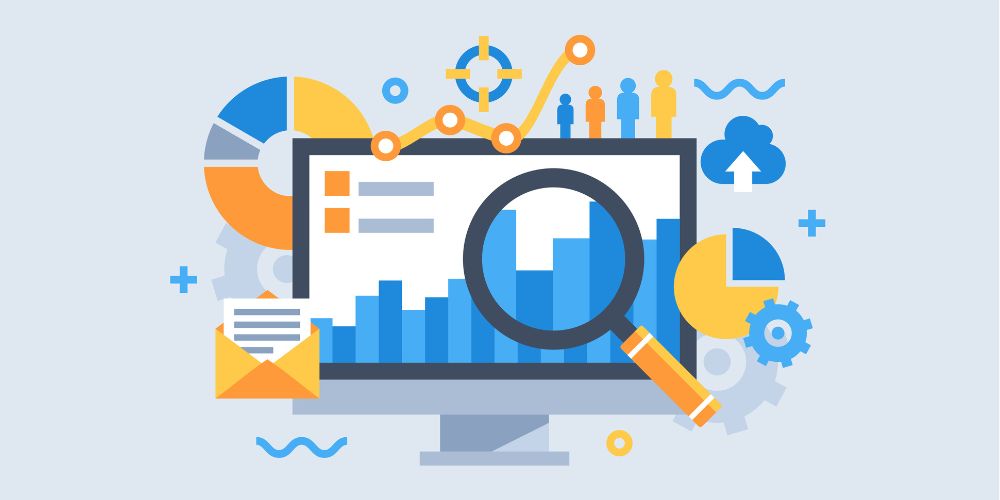Digital marketing has been a part of business life for years, but how do you know if your company is using it well? How do you sift through the data, and even determine which metrics are most important to analyze? Read on to learn about how to use data to maximize your return on investment in digital marketing.
Analytics and What They Can Tell You
Analytics data show how well your campaigns are working, what is working well, what practices can be retired, and can reveal insights for getting the best return on investment (ROI). Analytics help you understand how customers interact with and across all of your applications and sites, throughout the life cycle of the customer relationship.
Customer Experience on Your Website
Looking at your campaign reports can tell you how well you’re meeting marketing goals. For example, knowing how many people visit your website and how long they spend there can show what content most engages visitors. And how many return to your website for subsequent sessions? An insight gained from this metric can tell you how to personalize content for even more engagement. Say you notice that people access your website on the go, on their mobile devices. Is your website optimized for mobile use? Improving user experience across devices might become a new goal to measure. A key metric is click-throughs, when a visitor clicks on an ad on your website. A conversion, when a visitor is won over to your brand, could mean a completed web form, or a completed purchase.
Email Campaigns
How are your email campaigns going? Perhaps there is room for improvement, like a slightly elevated bounce rate. Now might be the time to clean your email list, pruning out old email addresses. Are you getting new subscribers? That’s great, and could mean knowledge of your brand is expanding.
Social Media
How are your social media campaigns going? How many likes, comments and shares are you getting? What content gets the most engagement? What platforms do users favor?
Gaining Insight from Data
Once you have the data, how do you know what it’s telling you? This is where an analytics tool is helpful. Some, like Google Analytics, use machine learning to derive insights from the vast data pool your marketing efforts can create. You might know which website pages your viewers are exiting, but do you know why visitors are exiting? For instance, you might need to improve the clarity of calls to action. Here are some other benefits of a tool like Google Analytics:
- Customer-focused measurement: it shows what engages customers, as well as identifying patterns, and tracking customer journeys from first visit to conversion.
- Integration with other Google tools, like Google Ads and Google for Business, to turn insights into action that gets results.
- Intuitive, flexible reporting system, to quickly analyze your data, create reports to share, and collaborate with your team. The program collects, processes and reports data easily, so that you get the valuable insights that help you move forward.
Marketing efforts produce abundant data, and analytics tools can help you integrate it to generate insights on how you’re meeting your key performance indicators. For further assistance, contact ClikCloud today.

Recent Comments